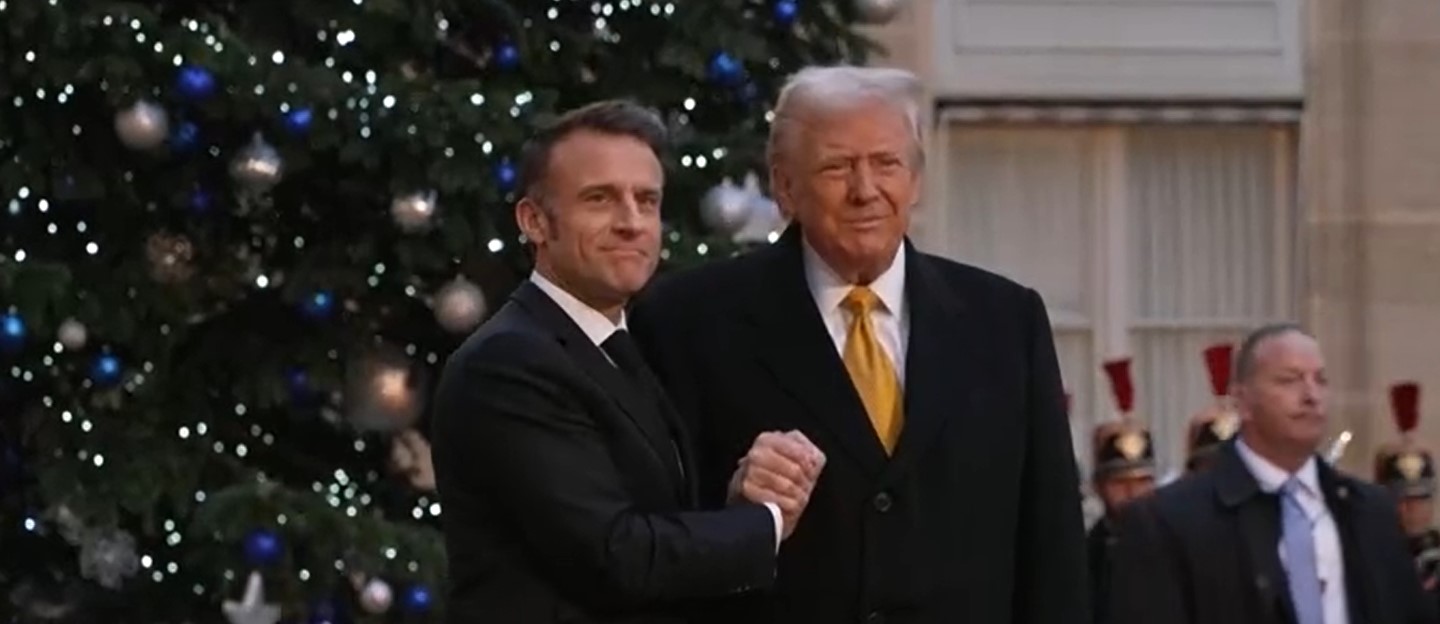Commentary: Big Tent Ideas
DAVID BLACKMON: Trump Should Consider Adding Another Globalist Org To Funding Chopping Block

French President Emmanual Macron greets President-elect Donald Trump in Paris, Dec. 7, 2024. (Screen Capture/CSPAN)
Among the many promises and commitments that he has made during his ongoing transition period, President-elect Donald Trump has pledged to pull U.S. support for the World Health Organization and cancel its commitments related to the 2015 Paris Climate Agreement. If a new report issued this week by the Senate Committee on Energy and Natural Resources and incoming chairman Republican Wyoming Sen. John Barrasso, is any guide, Trump perhaps should add U.S. support for the International Energy Agency to his growing list of cancellation opportunities.
“French President Macron’s observation that IEA has become the ‘armed wing for implementing the Paris Agreement’ is regrettably true,” said the report. “With the many serious energy security challenges facing the world, however, IEA should not be a partisan cheerleader. What the world needs from IEA—and what it is not receiving now—is sober and unbiased analyses and projections that educate and inform policymakers and investors. IEA needs to remember why it was established and return to its energy security mission.”
The IEA was established in 1974 in response to the first Arab Oil Embargo which resulted in dramatically higher prices for crude oil and gasoline at the pump. Originally supported by 31 member countries including the United States, the agency’s mission was to provide accurate information related to global oil supply and demand which subscribing countries could use to help form effective energy policies. That original mission held firm for decades, during which the IEA was widely considered a leading source of real, unbiased energy information.
But politics tends to corrupt everything it touches, and the IEA has unfortunately proved to be no exception to that rule. As the politics surrounding climate alarmism rose to new highs following the signing of the Paris Climate Agreement, the agency came under increasing pressure to radically alter its mission from that of a provider of real information worthy of trust to more of an activist posture.
In 2020, the report notes, this led to a shift in the IEA’s mission statement and to a new design to its modeling processes that form the basis for its annual World Energy Outlook. As its modeling base case, the agency abandoned its longstanding Current Policies Scenario, which Barrasso’s report describes as “essentially a ‘business as usual’ reference case,” in favor of a more aggressive Stated Policies Scenario.
Barrasso’s report describes this new scenario as “a hypothetical outlook based on unimplemented policies and grounded in unrealistically optimistic assumptions about the pace and scale of the transformation, especially concerning the adoption of electric vehicles by consumers.” It is an approach intentionally designed to introduce bias into the modeling process, and thus into the IEA policy recommendations for which the modeling process serves as the foundation.
This inevitable bias had an immediate and very noticeable effect. In a report published by the IEA in May 2021 Executive Director Fatih Birol laughably stated that “there will not be a need for new investments in oil and gas fields” and urged oil and gas producers to halt investments in exploration and development of new oil reserves. But that was before oil prices exploded as global demand exceeded supply during the recovery from the COVID pandemic, and by August Birol had completely reversed himself, joining President Joe Biden in a desperate call for more oil drilling to help resolve the situation.
Obviously, this sort of flip-floppery does severe damage to the agency’s already crumbling credibility as well as to the justification for governments to continue pouring millions of dollars into its operations each year. Barrasso’s report correctly notes that the IEA’s “reputation has lost its luster.”
Barrasso’s report is blunt about the kinds of reforms he would like to see at the IEA, urging Birol to abandon its advocacy posturing against investments in oil, natural gas, and coal, and to “once again produce for its World Energy Outlook a real unbiased, policy-neutral ‘business as usual’ reference case of the kind the Energy Information Administration produces.”
The Wyoming senator stops short of calling for the U.S. defunding of the IEA, but the agency’s currency is information. If that currency has lost its value, then perhaps Trump should consider a more aggressive approach.
David Blackmon is an energy writer and consultant based in Texas. He spent 40 years in the oil and gas business, where he specialized in public policy and communications.
The views and opinions expressed in this commentary are those of the author and do not reflect the official position of the Daily Caller News Foundation.
All content created by the Daily Caller News Foundation, an independent and nonpartisan newswire service, is available without charge to any legitimate news publisher that can provide a large audience. All republished articles must include our logo, our reporter’s byline and their DCNF affiliation. For any questions about our guidelines or partnering with us, please contact [email protected].

